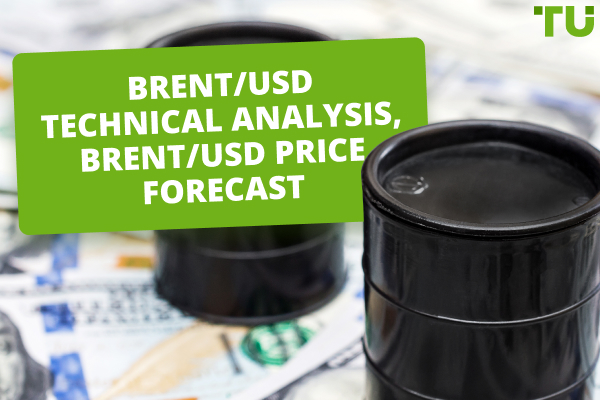Which Currency Pairs Have The Most Liquidity?
Worldwide, the most liquid currency pair is EUR/USD, with a liquidity rate of 28%, followed by USD/JPY and GPB/USD, which are 13% and 11% respectively.
In Forex trading, success often hinges on making the right choices. Among these choices, selecting the correct currency pairs becomes critical in determining whether your trades skyrocket or flounder. Understanding the most liquid currency pairs will help you learn how to execute successful Forex trading.
In this article, we dive deeper into the aspects of liquidity in Forex and shed light on why traders must pay attention to this aspect. Let's understand why choosing a pair with low liquidity can lead to failure and why you should read this article till the end to equip yourself with essential trading knowledge.
Do you want to start trading Forex? Open an account on Roboforex!What is liquidity in Forex, and why is it important for a trader?
Liquidity in Forex refers to the availability with which a currency pair is able to be bought or sold without significantly, either positively or negatively, affecting its price. Basically, it measures how quickly you can enter or exit a trade without causing excessive price fluctuations. This factor is significant for traders as it affects the ability to execute trades smoothly, especially when dealing with huge-volume positions.
Imagine trying to trade a currency pair with low liquidity. You might find it challenging to enter or exit your positions at the desired price, resulting in slippage and potential losses. On the other hand, highly liquid currency pairs facilitate seamless trading, allowing you to execute orders promptly and with minimal impact on prices. This is why understanding liquidity is crucial for traders aiming to optimize their strategies and minimize risk.
As stated in 2023, Forex liquidity is around $8 trillion daily, according to the triennial report by the Bank of International Settlements. This statistic underscores the expansive opportunities and challenges Forex traders face daily, making it crucial to understand and leverage liquidity to your advantage.
How important is liquidity for different strategies and indicators?
The importance of liquidity varies depending on your trading strategy and the indicators you use. For instance, day traders, who rely on rapid price movements and quick executions, need highly liquid currency pairs, however, price fluctuations before establishing position at the time of market closing will not affect significantly. Make sure that you select the best brokers as brokerage services in terms of speed will matter the most.
Conversely, longer-term investors may prioritize other factors over liquidity, such as fundamental analysis and economic trends. While they might not be as concerned about liquidity as day traders, it still plays a vital role in ensuring that trades can be executed at reasonable prices.
How much does the liquidity of a Forex pair affect the spread width?
Liquidity and spread width are intertwined in Forex trading. The spread is the difference between the buying (bid) price, which is the maximum price a dealer is willing to pay and the selling (ask) which is a minimum price a dealer is willing to take for a currency pair. Liquidity directly impacts the spread width – the more liquid a currency pair, the narrower its spread tends to be.
Generally, brokers charge lower commissions in the case of high liquidity in currency pairs. It would be suitable for traders to trade in highly liquid currency pairs to reduce their expenses and increase their net profits.
In highly liquid pairs like EUR/USD- 28%, where major financial institutions and traders are actively participating, the spread is typically tight, meaning the differentiation between buying and selling prices of Forex is small. This is advantageous for traders, as it reduces the cost of entering and exiting positions.
Conversely, in less liquid pairs, spreads tend to be wider, which can increase trading costs. Most traders often prefer highly liquid currency pairs, as they offer cost-efficient trading opportunities.
Here are the most liquid currency pairs based on trading volumes, as per a 2023 triennial report by the Bank of International Settlements:
EUR/USD = 28%
USD/JPY = 13%
GBP/USD = 11%
AUD/USD = 6%
In conclusion, let's remember that understanding liquidity and carefully trading the most liquid currency pairs are essential components of a successful Forex trading strategy, but they do not guarantee success on their own. Each trader has unique characteristics, risk tolerance, and circumstances that should be taken into account when developing a trading plan. The Forex market is dynamic and ever-changing. So, the key to success is adaptability and continuous learning.
Best Forex brokers 2024


FAQs
What creates liquidity in Forex?
Liquidity in the Forex market is mainly driven by the active participation of banks, financial institutions, and individual traders. High trading volumes and a diverse range of participants contribute to liquidity.
Is liquidity good in Forex?
Yes, liquidity is generally considered good in Forex trading. It allows for efficient trading, narrower spreads, and smoother execution of orders. However, the level of liquidity needed may vary depending on the individual trader's trading style and objectives.
Can a currency pair's liquidity change over time?
Liquidity in Forex can change over time due to various factors, including economic events, geopolitical developments, and market sentiment. Currency pairs that were once highly liquid may become less so, and vice versa.
How do news and economic events affect liquidity in Forex?
Economic events, such as interest rate decisions or geopolitical developments, can significantly impact liquidity in the Forex market. During major announcements or events, traders may become more cautious, leading to temporary affecting the flow of liquidity. Conversely, unexpected news can lead to sudden spikes in liquidity as traders rush to adjust their positions.
Glossary for novice traders
-
1
Broker
A broker is a legal entity or individual that performs as an intermediary when making trades in the financial markets. Private investors cannot trade without a broker, since only brokers can execute trades on the exchanges.
-
2
Trading
Trading involves the act of buying and selling financial assets like stocks, currencies, or commodities with the intention of profiting from market price fluctuations. Traders employ various strategies, analysis techniques, and risk management practices to make informed decisions and optimize their chances of success in the financial markets.
-
3
Forex Trading
Forex trading, short for foreign exchange trading, is the practice of buying and selling currencies in the global foreign exchange market with the aim of profiting from fluctuations in exchange rates. Traders speculate on whether one currency will rise or fall in value relative to another currency and make trading decisions accordingly.
-
4
Investor
An investor is an individual, who invests money in an asset with the expectation that its value would appreciate in the future. The asset can be anything, including a bond, debenture, mutual fund, equity, gold, silver, exchange-traded funds (ETFs), and real-estate property.
-
5
Leverage
Forex leverage is a tool enabling traders to control larger positions with a relatively small amount of capital, amplifying potential profits and losses based on the chosen leverage ratio.
Team that worked on the article
Upendra Goswami is a full-time digital content creator, marketer, and active investor. As a creator, he loves writing about online trading, blockchain, cryptocurrency, and stock trading.
Dr. BJ Johnson is a PhD in English Language and an editor with over 15 years of experience. He earned his degree in English Language in the U.S and the UK. In 2020, Dr. Johnson joined the Traders Union team. Since then, he has created over 100 exclusive articles and edited over 300 articles of other authors.
Mirjan Hipolito is a journalist and news editor at Traders Union. She is an expert crypto writer with five years of experience in the financial markets. Her specialties are daily market news, price predictions, and Initial Coin Offerings (ICO).









